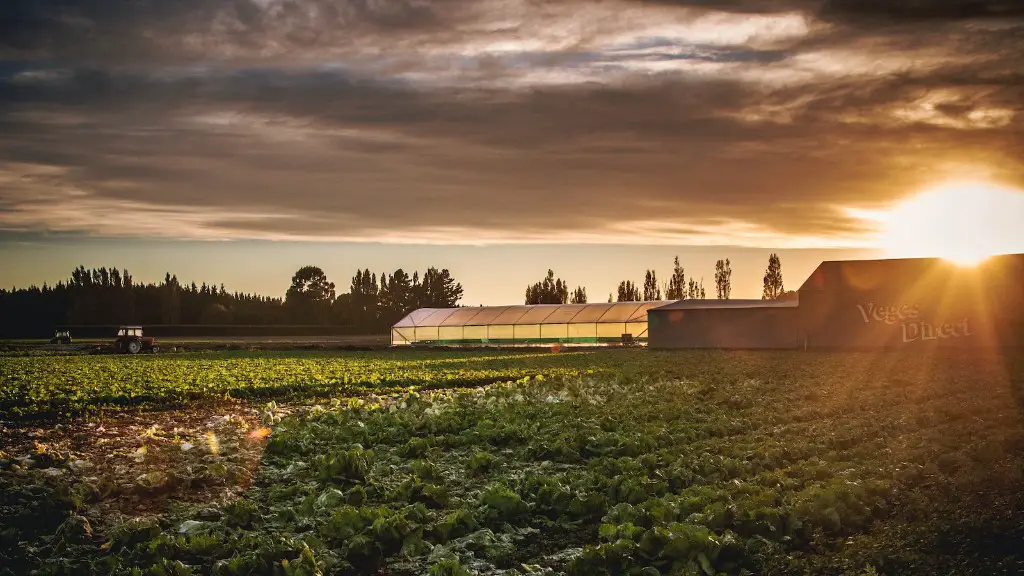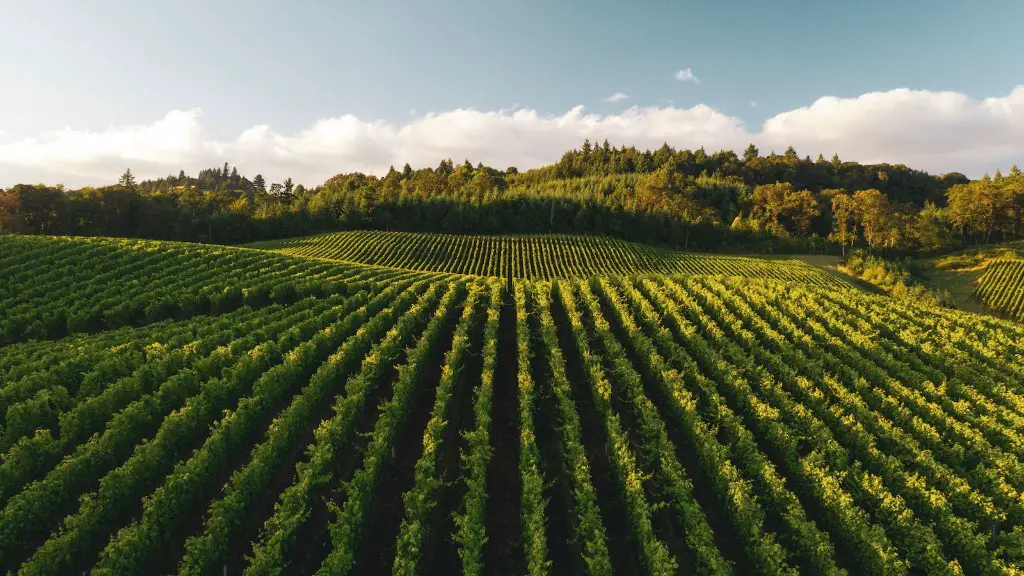Agriculture is one of the most important industries in the world, providing employment for millions of people in a wide variety of roles. According to recent estimates, there are currently over 1.3 billion people employed in agricultural jobs worldwide. This number has grown steadily over time, as the demand for food, fiber, and other agricultural products continues to grow.
Agriculture jobs vary widely in terms of their duties and responsibilities. Some roles are aimed at production, such as farmers, ranchers, and agricultural laborers. Other roles help to support agricultural activities, such as processers, transporters of goods, and marketers. Many agricultural jobs are also found in the service sector, including those involved in research, education and extension.
Agricultural jobs come in many different forms and are found in a variety of settings. Some are located on farms and ranches, while others are found in urban areas. Many agricultural jobs also require specialized education and training, such as soil science, crop science, animal husbandry, and horticulture.
In addition to the traditional jobs found in agriculture, new roles are also emerging. These include jobs in the area of technology, including computer and information science, automation, and robotics. There is also the growing presence of agricultural technicians, who help to manage the data and systems needed to maintain an efficient farm or ranch.
Overall, the number of agricultural jobs worldwide is expected to continue growing over the next few years. This will not only increase employment opportunities, but also lead to more innovation and development in the industry. As the need for agricultural products grows, so too will the need for knowledgeable and qualified personnel.
Mechatronics in Agricultural Jobs
Agricultural jobs are becoming increasingly technical and highly automated, prompting greater demand for agricultural mechatronics and robotics professionals. Mechatronics is the integration of mechanical engineering, control engineering, electronics, and computer engineering, to support the development and deployment of automated systems for agriculture. Mechatronics professionals are in high demand, as agricultural employers seek to create systems that improve the efficiency, accuracy, and productivity of their operations.
Agricultural mechatronics can be used to automate processes such as soil analysis, crop monitoring, pest control, irrigation, machinery, and more. By employing expert knowledge and understanding of complex systems, mechatronics professionals can create automated solutions to reduce human labour, manual errors, and inefficiencies, while increasing the overall productivity of a farm or ranch.
In addition to automation, mechatronics engineers can also help optimize farm equipment and provide support in the development of precision agriculture systems. By utilizing data collected by sensors, drones, and satellite imagery, mechatronics professionals can create automated tools that improve the accuracy and effectiveness of farming operations.
Given its ever-increasing demand, mechatronics is poised to become a major component of the agricultural job market in the coming years. Successful mechatronics professionals will need to be well versed in robotics, electronics, systems design and control, and computer engineering.
Financial Management in the Agriculture Industry
Financial management is essential for farms and ranches to be cost-effective and successful. Financial managers use their knowledge of accounting, economics, and finance to guide the overall budgeting and financial operations of a farm or ranch. Financial managers also develop strategies to maximize the return on investment in farm operations, such as crop production and animal husbandry.
Financial management in the agriculture industry requires a deep understanding of the financial needs of farms, ranches, and other food-producing operations. Financial managers must be able to analyze budgets, assess financial risks, and identify potential business opportunities. They must also be knowledgeable about tax laws, credit regulations, and market conditions, in order to make informed financial decisions.
In addition to the traditional role of financial managers, agricultural employers are increasingly looking for professionals with expertise in sustainability and economic development. These professionals help ensure that a farm’s or ranch’s operations are ecologically sustainable and financially viable. They also work with local communities to develop projects and initiatives that promote economic growth and job creation.
Financial managers in agriculture must be adept in issues such as capital structure, asset management, budgeting, investment analysis, and the oversight of financial systems. Advanced knowledge of finance and economics is essential for success in this role.
Strategic Planning in Agriculture Jobs
Strategic planning is essential for the success of any business, including those operating in the agricultural industry. Strategic planners help assess the current market, identify potential opportunities, develop strategies and plans to exploit those opportunities, and execute those plans in order to achieve the desired goals.
Strategic planners in agriculture must be knowledgeable in the intricacies of the agricultural industry, including farming, ranching, forestry, and food production. They must also be adept in the areas of market research, communications, and project management. This requires a deep understanding of the industry and the necessary skills to create and implement effective strategies.
To be successful, a strategic planner must possess critical thinking and problem-solving skills and have the ability to identify and analyze information, develop creative solutions, and make reasoned decisions. An understanding of the economic and political forces that shape the agricultural industry is also essential for success in this role, as is a familiarity with risk management strategies.
Successful strategic planning must involve a deep understanding of the dynamics of the agricultural industry, including the various stakeholders and the various recreational, agricultural, and economic concerns of those stakeholders. Strategic planners must be able to craft effective plans that are both accessible and understandable by a variety of audiences.
Data Analysis in Agriculture
Data analysis has become increasingly important in the agricultural industry, with many farms and other agricultural operations relying on data to make decisions and track progress. Data analysis in agriculture involves collecting and analyzing information from various sources, such as market research and satellite imaging, in order to identify trends and insights that can be used to optimize operations.
Data analysts in agriculture must be knowledgeable in the areas of mathematics, statistics, and computer programming. They must also possess an understanding of the agricultural industry, including crop production, animal husbandry, market trends, and more. Data analysts must be able to communicate their findings in a clear and concise manner, so that farmers and other agricultural professionals can make effective decisions based on the data.
Data analysis in agriculture can be used to track production, monitor consumer preferences, analyze natural resource usage, and more. Data scientists must utilize a variety of methods, such as descriptive analysis, predictive modeling, machine learning, and experimentation to identify trends and optimize operations.
Data analysis is also useful for identifying potential risks and opportunities. Data analysts can help farmers identify potential threats, and can also help them develop strategies to adapt to changing conditions and seize new opportunities.
Sustainability in Agriculture
Sustainability is increasingly important for agricultural operations, with many farmers and ranchers looking for ways to minimize their environmental impact and maximize the efficiency of their operations. Sustainability in agriculture involves making conscious decisions to minimize waste, reduce energy consumption, protect natural resources, and utilize natural processes in order to increase yields and profitability.
Sustainability professionals must be knowledgeable in areas such as land use, resource management, and environmental regulations. They must also have a deep understanding of the environmental and economic aspects of farming and ranching, in order to develop strategies to minimize ecological impacts while still allowing for the sustainable production of agricultural products.
There are a variety of methods that Sustainable agriculture professionals can utilize, such as renewable energy sources, farming and ranching practices that minimize waste and water use, plant genetics, and more. Sustainable agriculture professionals must also understand social and economic aspects of farming and ranching, such as marketing, labor management, and community involvement.
In addition to helping protect natural resources, sustainability initiatives can also help increase efficiency and improve the quality of products. Sustainable agriculture can help farmers and ranchers reduce costs, increase yields, and boost their bottom line.





